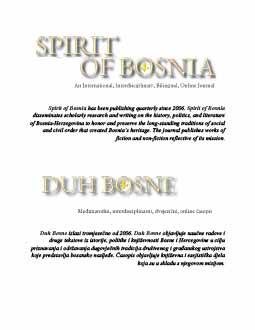The Ethnopedagogical Mosaic of Bosnia and Herzegovina
The Ethnopedagogical Mosaic of Bosnia and Herzegovina
Author(s): Adnan TufekčićSubject(s): Education
Published by: Wittenberg University - Sociology Department
Summary/Abstract: Contemporary pedagogy as a science has been going through a crises similar to that of other humanistic sciences. Humanity faces problems that indirectly and directly relate to education. Attempts to resolve these problems and challenges often, especially in the so-called transitional societies, end up as unsuccessful reforms of the formal educational system. This failure has led to the beginning of a new discipline. Ethnopedagogy began in the second part of the 20th century as a result of efforts to study folk pedagogy scientifically and apply the results to the contemporary system of education. As a relatively new and modern discipline, the roots of ethnopedagogy are found in both anthropology and ethnology. The term ethnopedagogy was first coined by G. N. Volkov (Геннадий Никандрович Волков), who explains ethnopedagogy as the history and theory of ethnic education, that is, a science that studies people’s upbringing, native pedagogical views, and everyday educational practices within the family and the community.
Journal: Duh Bosne
- Issue Year: 9/2014
- Issue No: 3
- Page Range: 1-4
- Page Count: 4

